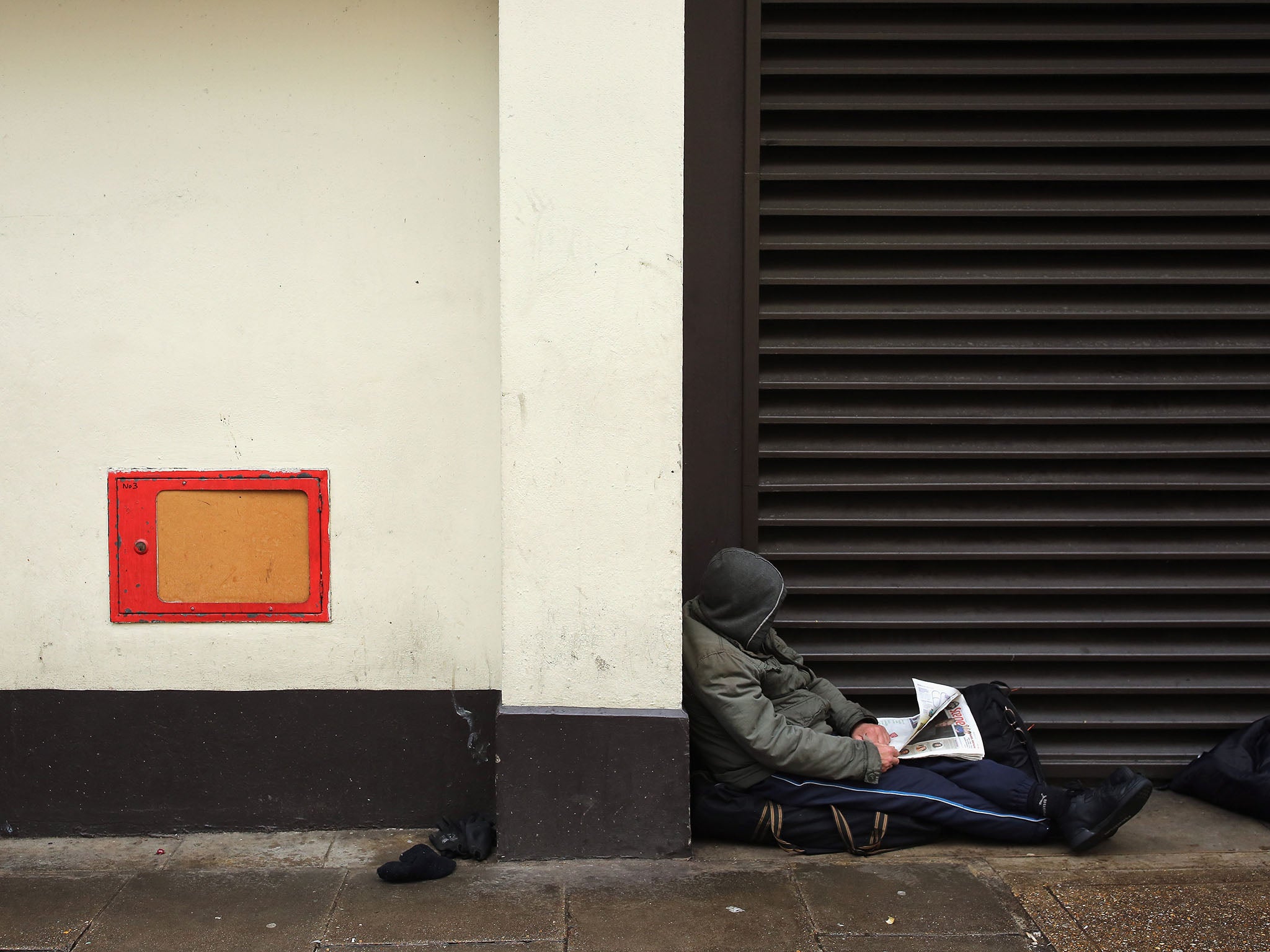Government austerity to blame for 30% rise in homelessness, says parliamentary committee
MPs warn that the number of homeless people is rising because most housing benefit claimants have to pay rent out of their state payments, rather than it being straight to their landlords

The Government’s welfare reforms are driving up homelessness, according to MPs who conducted the first inquiry into the scale of the problem for 10 years.
In a report, the Communities and Local Government Select Committee found that official figures underestimate the risen in homelessness and demanded urgent action to tackle it. The estimated number of rough sleepers in England rose by 30 per cent to 3,569 between 2014 and last autumn – a quarter of them in London.
The cross-party committee expressed concern about “hidden homelessness”, saying the statistics do not include people who do not approach local authorities for help or who are turned away before making a formal request.
The MPs warned that the number of homeless people is rising because most housing benefit claimants have to pay rent out of their state payments. They said all claimants should have the option of their rent being paid directly to landlords to reduce their chance of getting into arrears and to encourage landlords to rent to tenants at risk of becoming homeless. Many 18 to 21 year-olds are “at significant risk” of homelessness, and the MPs proposed that those losing their job should have a “grace period” of one or two months before losing the housing element of Universal Credit. Calling for greater financial incentives to work, they said: “It cannot be right that someone must choose between the support they need and employment.”
The committee concluded: “The impact of the welfare reforms of recent years has increased pressure on levels of homelessness.” It added that the annual cap on benefit payments to one family – £20,000 and £23,000 in London – could worsen the problem.
The MPs called for women, single people and those with mental health problems to be given extra help. They heard evidence that women were driven into prostitution to avoid sleeping on the streets and said victims of domestic violence were particularly at risk of becoming homeless.
The committee took the unusual step of endorsing a Private Member’s Bill to be debated in the Commons in October which would give councils new duties to prevent homelessness and help homeless people.
Clive Betts, the committee’s Labour chairman, said: “The scale of homelessness is now such that a renewed Government strategy is a must.” Calling on local authorities to play a “big part” in tackling the problem, he added: “They face a significant task with funding pressures and legal obligations, but vulnerable people are too often badly treated, being made to feel like they are at fault, and offered ineffectual and meaningless advice.”
Tim Farron, the Liberal Democrat leader, said: “Soaring homelessness is an utter disgrace in 21st century Britain. It's a symptom of the housing crisis that the Government is failing to tackle. As well as inadequate social housing, we now have an expanding private rented sector which is too often unstable, unsafe and unaffordable, and renters can end up homeless through no fault of their own.”
Jon Sparkes, chief executive of Crisis, the charity for the single homeless, said Theresa May should back the Bill as part of her social justice agenda. “We cannot sit back and watch as the homelessness crisis deepens,” he said.
In a separate report, the Tory modernisers’ think tank Policy Exchange said jobless people aged 25 and under are more likely to have their benefits stopped or reduced for not doing enough to find work than any other age group. It found that young adults account for more than a third of benefit sanctions but account for less than a fifth of claims for Jobseeker’s Allowance. Of the 101,640 young people claiming it last November, 5,812 received a sanction.
Policy Exchange called for a shake-up of benefits and support for 16 to 25 year-olds, including the creation of youth employment centres.
Subscribe to Independent Premium to bookmark this article
Want to bookmark your favourite articles and stories to read or reference later? Start your Independent Premium subscription today.

Join our commenting forum
Join thought-provoking conversations, follow other Independent readers and see their replies